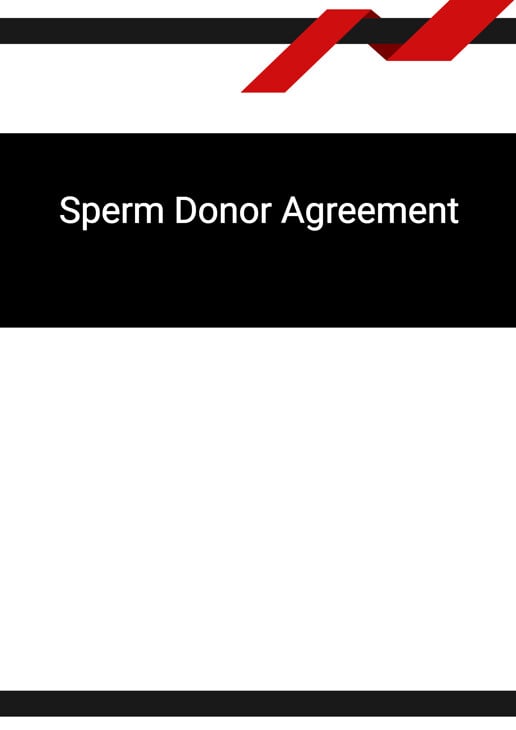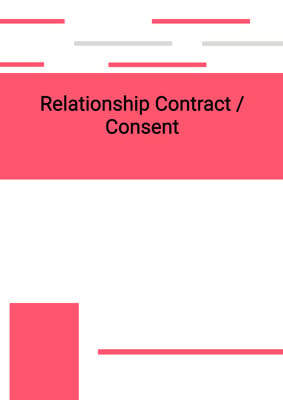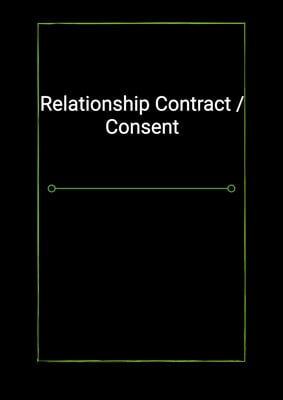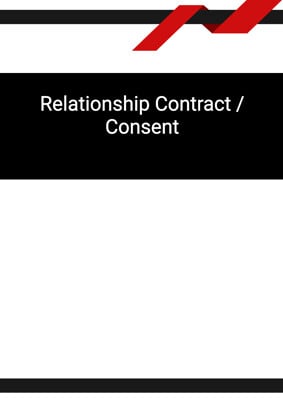How to Tailor the Document for Your Need?
01
Create Document
Fill in the details of the parties. You can click the "Fill with Member’s Information" button to complete it with information saved to your account.
02
Fill Information
Please fill in any additional information by following the step-by-step guide on the left hand side of the preview document and click the "Next" button.
03
Get Document
When you are done, click the "Get Document" button and you can download the document in Word or PDF format.
04
Review Document
Please get all parties to review the document carefully and make any final modifications to ensure that the details are correct before signing the document.
Document Preview
Document Description
The Sperm Donor Agreement is a legal document that outlines the terms and conditions for sperm donation for the purpose of artificial insemination. It is important as it establishes the rights and responsibilities of both the donor and the recipient, ensuring that both parties are aware of their obligations and expectations.
The entire document is divided into several sections, each addressing a specific aspect of the agreement. The first section, 'Purpose,' states that the donor agrees to provide his sperm to the recipient for the purpose of artificial insemination to produce a child or children. It also clarifies that the donor will not have any guardianship, custody, or visitation rights with any resulting children.
The second section, 'Medical History,' requires the donor to fully disclose his medical history, including any genetic or hereditary conditions. The donor must also undergo medical testing to confirm their medical status. Any material changes to the donor's medical history must be promptly notified to the recipient.
The third section, 'Legal Rights and Responsibilities,' emphasizes that the donor has no legal rights or responsibilities with respect to any resulting children, except as specifically stated in the agreement. The donor agrees to waive any legal rights or responsibilities and execute any necessary documents to confirm this. The recipient acknowledges that the donor's role is solely that of a sperm donor and that the donor will not be involved in the upbringing of any resulting children.
The fourth section, 'Compensation,' states that the recipient will pay the donor a specified sum for each successful artificial insemination. The recipient is responsible for all expenses related to the procedure. The donor is not entitled to any additional compensation or reimbursement, except as explicitly mentioned in the agreement.
The fifth section, 'Confidentiality,' requires both parties to maintain the confidentiality of the agreement and any private information related to the other party. The identity of the donor must be kept confidential, unless consent is obtained or as required by law. The recipient is responsible for ensuring the donor's identity remains confidential and for any breach of confidentiality by their agents or representatives.
The sixth section, 'Term and Termination,' specifies the duration of the agreement and the conditions for termination. Either party can terminate the contract by giving written notice to the other party.
The seventh section, 'Enforceability,' states that if any provision in the agreement is found to be invalid or unenforceable, the remaining provisions will still be in effect. The parties are allowed to substitute an invalid provision with a similar enforceable term.
The eighth section, 'No Rights Under Contracts for Third Parties,' clarifies that individuals who are not parties to the agreement have no right to enforce its terms under any law.
The ninth section, 'Governing Law,' states that the agreement and the relationship between the parties will be governed by and interpreted in accordance with the jurisdiction state law.
In conclusion, the Sperm Donor Agreement is a comprehensive document that covers various aspects of sperm donation for artificial insemination. It ensures that both the donor and the recipient understand their rights, responsibilities, and obligations, providing a clear framework for the process.
How to use this document?
1. Provide information: Enter the names and addresses of both parties involved in the agreement, clearly identifying the donor and the recipient.
2. Specify the purpose: State that the donor agrees to provide his sperm for the purpose of artificial insemination to produce a child or children. Clarify that the donor will not have any guardianship, custody, or visitation rights.
3. Disclose medical history: The donor must fully disclose his medical history, including any genetic or hereditary conditions. The donor should also agree to undergo medical testing as required to confirm their medical status. Any changes to the donor's medical history must be promptly communicated to the recipient.
4. Establish legal rights and responsibilities: Emphasize that the donor has no legal rights or responsibilities with respect to any resulting children, except as specifically stated in the agreement. The donor should agree to waive any legal rights or responsibilities and be willing to execute necessary documents to confirm this.
5. Clarify compensation: Specify the amount the recipient will pay the donor for each successful artificial insemination. Make it clear that the recipient is responsible for all expenses related to the procedure.
6. Maintain confidentiality: Both parties must agree to keep the terms of the agreement and any private information confidential. The identity of the donor should not be disclosed without consent, except as required by law. The recipient should take steps to ensure the donor's identity remains confidential.
7. Define the term and termination: State the duration of the agreement and the conditions for termination. Either party can terminate the contract by giving written notice to the other party.
8. Address enforceability: Clarify that if any provision in the agreement is found to be invalid or unenforceable, the remaining provisions will still be in effect. The parties can agree to substitute an invalid provision with a similar enforceable term.
9. Specify governing law: State that the agreement and the relationship between the parties will be governed by and interpreted in accordance with the jurisdiction state law.
Note: It is important to consult with legal professionals to ensure compliance with applicable laws and regulations regarding sperm donation and artificial insemination.
Not the right document?
Don’t worry, we have thousands of documents for you to choose from:















